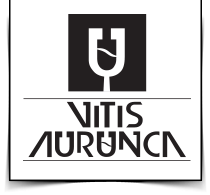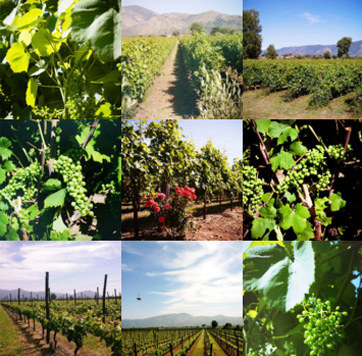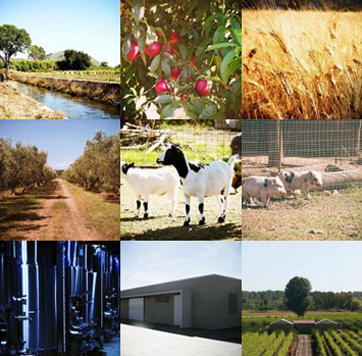IDENTITY
THE INSPIRATION
The company Vitis Aurunca was born from the passion of a group of agronomist and farmers to rediscover the peculiarities that, since ancient times, made the territory of Campania famous, particularly between the limestone massif of Mount Massico, the Roccamonfina volcano and the plain of river Garigliano.
The proximity to the Tyrrhenian Sea, which influence the local microclimate, and the volcanic soil contribute to the special peculiarities of wine.
The harvest begins as the grapes are completely ripe and the wine-making is made on site, in respect of the country of origin.
The outcome is the Falerno del Massico, the most famous wine and the most esteemed since antiquity. Said by many to be the first D.O.C. of the worldwide enology.
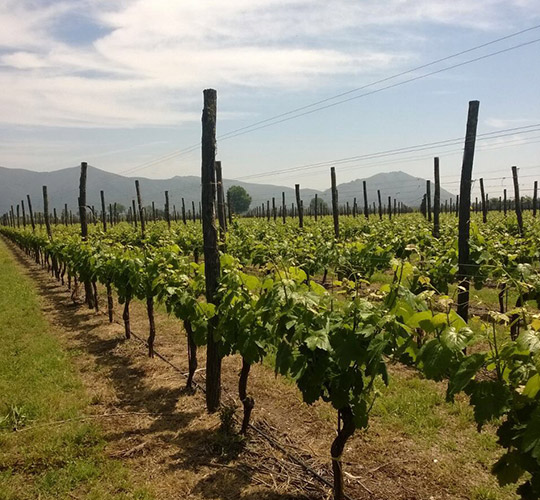

HISTORY AND TERRITORY
Everyone has certainly heard about, at least once in their lifetime, of such a wine called Falerno, “an ancient wine”, but few people really know it. One names, generally, Pliny the elder, it evokes some pictures stolen from mosaics, pottery and villa’s frescoes, but except for a small group of professional people, the majority of most motivated lovers ignores basically this historical witness of Campania viticulture and of high casertian. The fact itself wouldn’t be so bad, except that, Falerno is the father of all Italian wines and it’s the first wine with a designation of mankind origin.
This was confirmed by historical sources and some recent studies. The history of Falerno is the history of imperial Rome, a city at the top of its power, which made this wine purpose and result of an hard task in Campania that enriched the coffers of the empire and it made the colonists very wealthy, mostly soldiers on leave, who, in that piece of land Ager Falernus, settled against the granting of small plots. Ager Falernus is still identifiable today with the territory between the Mount Massico until the ancient Sinuessa, the slopes of Roccamonfina Volcano and the Tyrrhenian sea. The now melted land, medium textured, now more loamy, associated with a series of happy conditions related to other parameters(heat exchange, colloids and organic substances) and a unique microclimate on earth, make that triangle of land a single territory and particularly suitable for viticulture and for the production of Falerno of Massico.
This wine was widely famous in all the countries that made up the roman empire, as evidenced by the citations of Marziale, Horace, Virgil, Cicero and Pliny and it was subdivided, depending on the altitude of the grapes production, in “Caucinum”, “Faustianum” and “Falerno” marked by organoleptic level from the types “austerum”, “dulce” and “tenue” and sold in all the provinces of the vast roman empire in earthenware jars that were marked by “Pittacium”, the label of the era, in which, the type of wine, the year of production and the area of grapes origin was specified.
The ships involved in the transport of Falerno’s amphorae , set sailing from Sinuessa and Gianola’s ports and the mouth of Garigliano. From Manchester to Marseilles, from Dusseldorf and Cologne to Carthage in north Africa or in the depths of the Mediterranean, amphorae of Falerno have been found, the wine of Kings, the most expensive and desired wine in the roman empire.
Today the area of Falerno of Massico includes the municipalities of Carinola, Falciano del Massico and Sessa Aurunca, located at the north-western province of Caserta, Cellole and Mondragone, located on the Domitius shoreline. These locations insist in a land where the simultaneous presence of Mount Massico, the sloped of Roccamonfina Volcano and the fertile plain of Garigliano river are appreciated. The proximity of the Tyrrhenian sea, which influences positively this area’s microclimate, and the volcanic soil give the wine Falerno of Massico unique peculiarities. Wines produced with a registered designation of origin are: red Falerno of Massico, Falerno of Massico Primitivo, white Falerno of Massico and Falerno of Massico known as”reserve” or “old” .
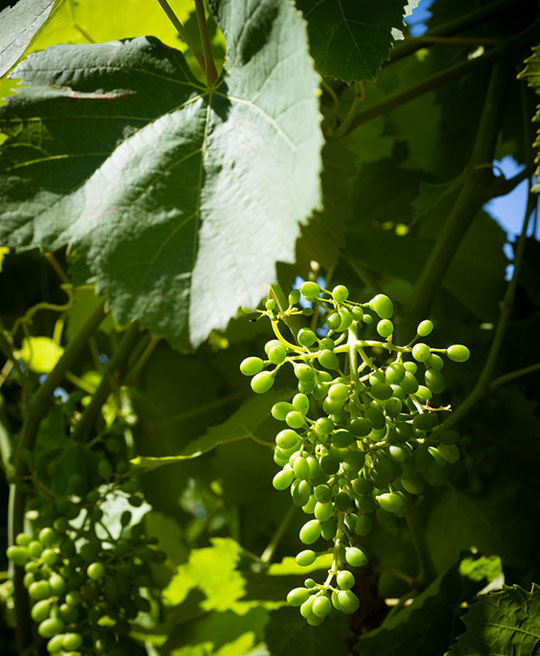
CORPORATE VALUES
1. 1. Respect for the environment – 2. 2. Rediscovery and production of ancient varieties – 3. Ethics
“We monitor what already exsists and we study how to preserve it before the introduction of any new agronomic technique”
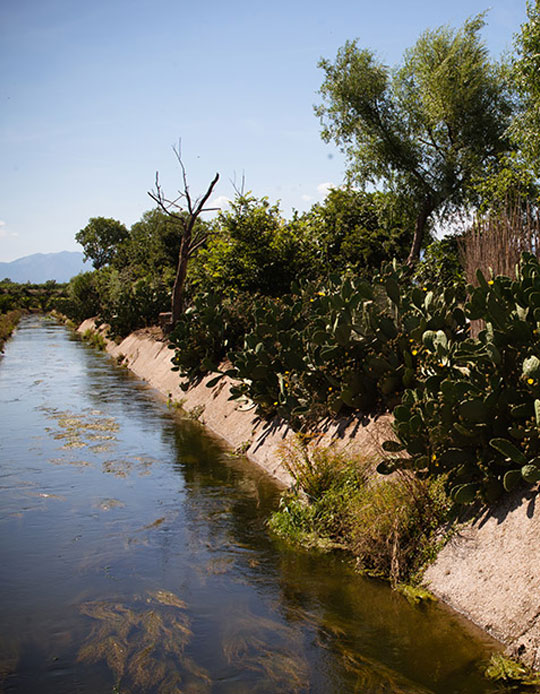
Environmental responsibility
1. Environmental responsibility means taking care of soil, water, air, biodiversity and adopt cutting-edge agricultural practices.
To the soil through a careful and meticulous study, you have a hydraulic-agriculture accommodation as currently set; excess runoff of rainwater, through drainage and main ditch, allowed access to fields even during rainy periods reducing superficial erosions and, at the same time, has created the best soil conditions for planting of tree species and vines grown therein. Also periodic mowing weeds of alleyways contributes to the stability of the soil and organic matter enrichment. The use of low molecular weight tractors and large contact surface prevents compacting surface horizon. Ground operations are performed only with land in tempera.
For the water, despite having ample supply from cooperative canals and wells, the company uses water resources with care and respect, locating the contributions where necessary(fruits and vegetables), avoiding excesses and disturbances in surface aquifers.
For the air, all facilities used are equipped with latest generation engines, low energy consumption and very low CO2 emissions. Photovoltaic panels on the of roofs of rooms used for cellar total energy demand contribute to self-sufficiency, without any visual impact from a landscape point of view, for the unusual shape of the roof of the same locations. Plant biodiversity is preserved and a particular attention is set to management of spontaneous essences of native flora, fine specimens of cedar, elm, hawthorn, oak, rose hips. Recently there has been creation of hedgerows along the borders formed by plants typical of the Mediterranean as oleander, myrtle, laurel and oak.
Plant biodiversity is maintained and a particular attention is put to the management of spontaneous essences of native flora, fine specimens of cedar, Elm, Hawthorn, Oak, rose hips. Recently there has been creation of hedgerows along the borders formed by plants typical of the Mediterranean as Oleander, Myrtle, Laurel and oak. In the Vitis Aurunca farm is a frequent presence the mammiferous species such as badgers, hares, foxes and weasels.Among the birds that populate our farm predominate the hoopoe, herons and stilt walkers generally, in addition to migratory species, particularly abundant in autumn and spring periods. Consortium channels that run through our fields we find crayfish in addition to carps and eels. The farm hosts hives of bees and pollinators in particular who takes advantage of the blooms, primarily those of lemon and orange groves. Between the agronomic practices and/o of conduction we signal:
- Rotating between crops
- Continuous monitoring of adversity to optimize pest control
- Joining the regional integrated pest management plan required
- Enrichment of soil organic matter with clippings of spontaneous essences
- Balanced nutritional intake based on the actual removal and physicochemical analyses periodically made
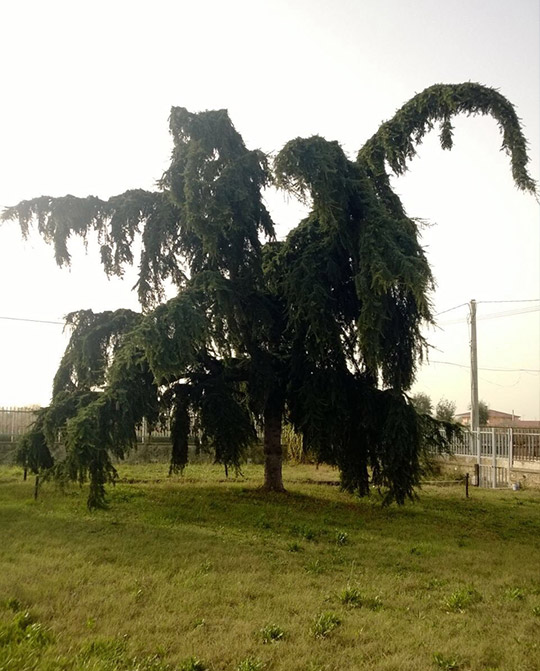
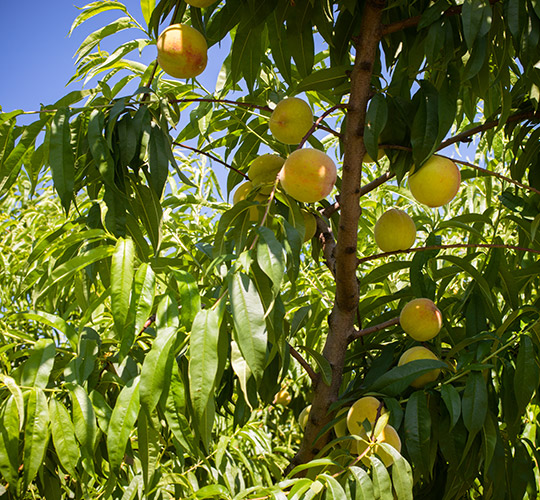
REDISCOVERY AND PRODUCTION OF ANCIENT VARIETIES
In addition to fruit varieties of more recent introduction, the company draws attention to the ancient cultures that made famous the territory since ancient times, as white peaches variety “Bella Castelforte, clingstone peaches, pears “Coscia”, “the vines” Barbera Telesino “in addition to primitive and Falanghina.
ETHICS
 We believe it is fundamental the respect of the people and things that surround us, the greatest possible transparency of production processes and healthiness of the final product.
We believe it is fundamental the respect of the people and things that surround us, the greatest possible transparency of production processes and healthiness of the final product.


